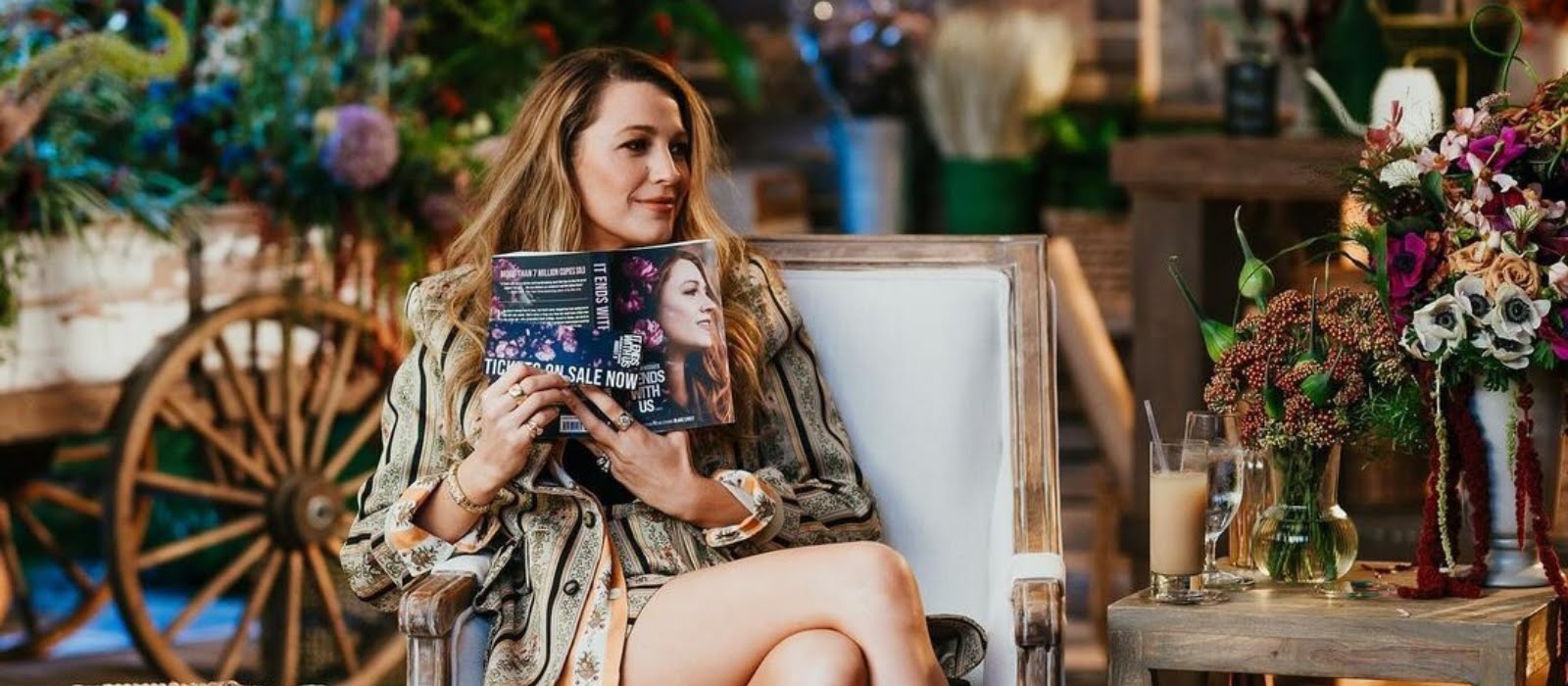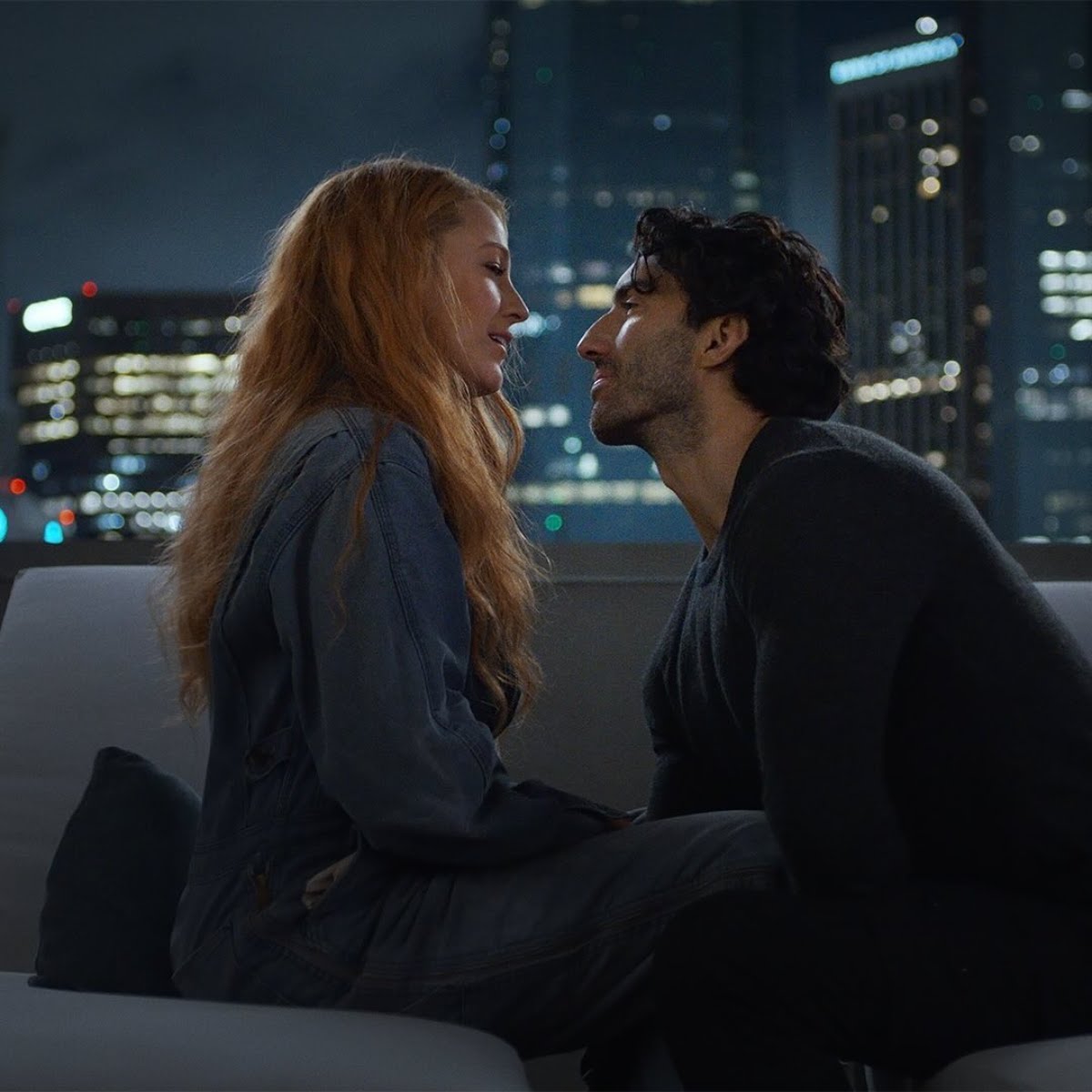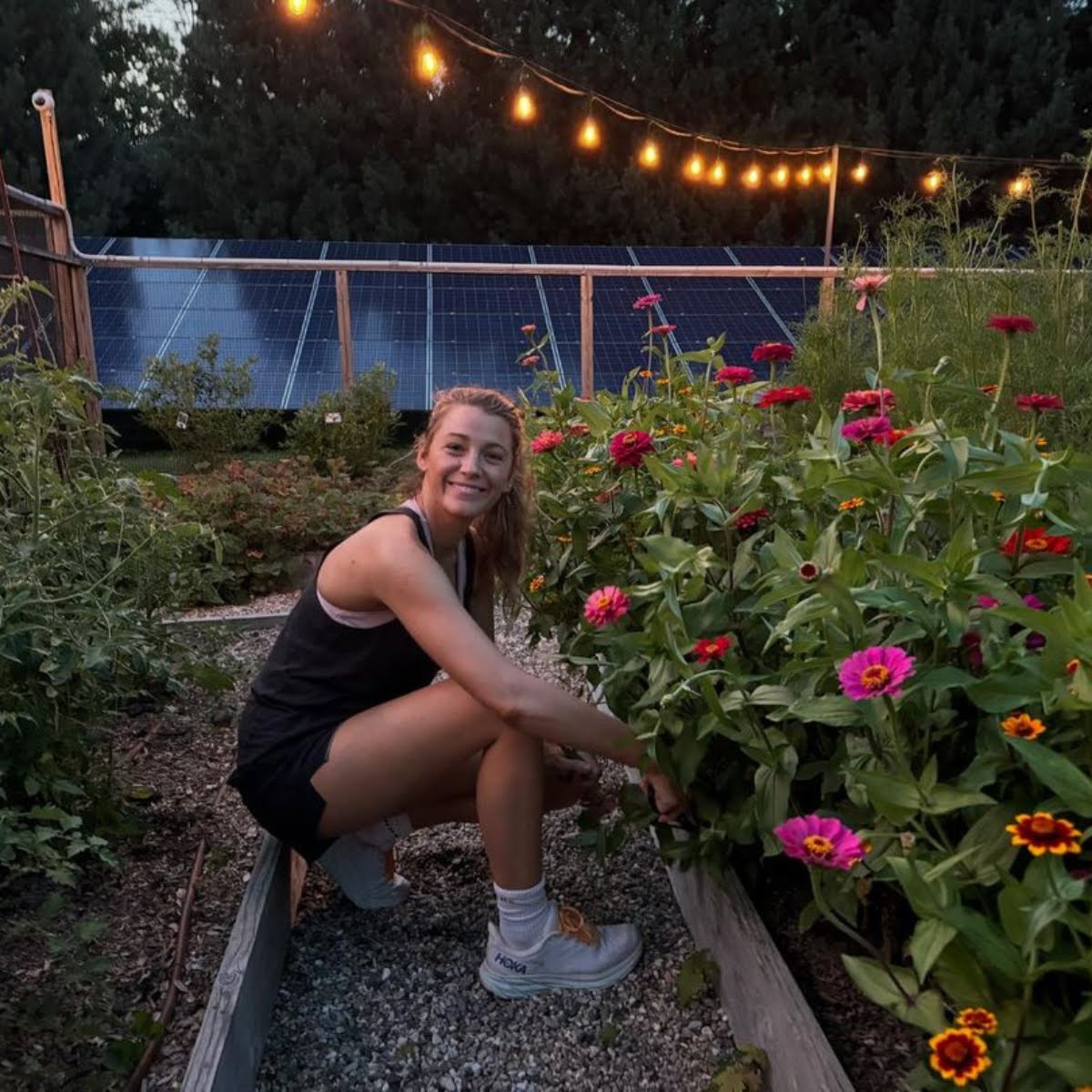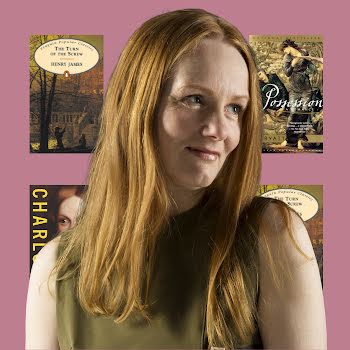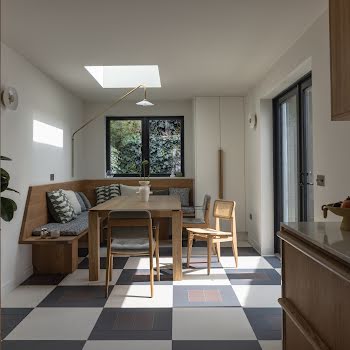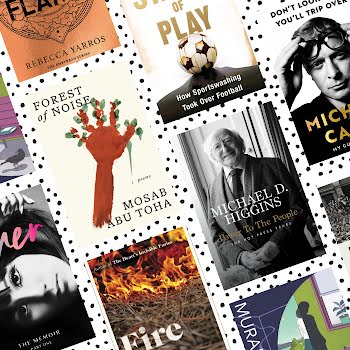As a woman who has suffered an abusive relationship, Roe McDermott understands only too well the importance of discussions about abuse against women. But the backlash against Blake Lively is showing us the opposite: society loves hurling abuse at women, and we will use any justification to do it.
This piece discusses gendered abuse and may be difficult for some people to read. Women’s Aid offers a free 24-hour National Helpline 24/7 on 1800 341 900.Reach out for help if you need it.
Last week, I went to the cinema on my own at 10.30am. It’s not as sad as it sounds – I was attending a press screening of a new film. I admit, I had come out of a tough week with little sleep and hadn’t done any reading up on the film I was about to see. I simply knew that it was some kind of romance drama, there had been a flower-filled PR campaign, and it was based on a book by Colleen Hoover, whose novels I have not read but who I was vaguely aware once had to apologise for trying to make some extra dollars by promoting a novel by also selling a companying colouring book. I didn’t remember when entering the cinema, but that colouring book was designed to accompany a novel called It Ends With Us. As it turns out, Colleen Hoover and the people around her still don’t know how to market a story about domestic violence in a respectful way.
As I watched It Ends With Us, I felt my body tense up, though initially, I wasn’t clear as to why. Maybe I was just having a full-body eye-roll at a film where the lead character is called Lily Blossom Bloom and her lifelong dream is to open a flower shop. (There is a dissertation to be written on female characters in films who run ultra-feminine businesses: flower shops, bakeries, cafes. “These women are strong independent business owners!” I can hear a scriptwriter telling a producer. “But in the least threatening way possible, where they’re still adhering to traditionally gendered work of cooking, baking, serving other people, making things pretty – it’s TradGirlBoss!”)
The film begins as stylish, almost hyper-pretty romance between Lily and rich neurosurgeon Ryle (Justin Baldoni.) These two obscenely attractive people seem to have, quite literally, the relationship of romance novels – some spark, some resistance, a whirlwind romance, a rich and luxury-filled life.
But something is off. Ryle has a temper. Flashbacks reveal darkness in Lily’s childhood home. And when Ryle becomes jealous of Lily’s past love, everything quickly unravels. We see how Lily and Ryle’s relationship is far from perfect. We revisit past scenes that were glossed over and see the grim reality. We remember that Lily, at the start of the film, calls herself an unreliable narrator. It’s not that Lily was intentionally lying to the audience – rather, she was lying to herself, overlooking incidents of control and escalating violence, focusing on Ryle’s good qualities, the romantic moments, the pretty privilege of their wealthy life until she cannot lie to herself any longer.
The film evokes Lily’s emotional journey, showing how she fell for Ryle so hard, loved him so much, that she wants to believe the best of him. She wants to believe that it was an accident, that he didn’t mean it, that he’s sorry. She wants to understand his childhood trauma, wants him to feel safe, wants to show him the unconditional love he cannot give himself. So she downplays the bad, focuses on the good, assures her friends – and we the audience – that her handsome husband is a good man. Until it becomes very clear that he is not.
It Ends With Us is a flawed film – Lily’s characterisation beyond her relationships with men is paper-thin. Supporting characters are similarly one-dimensional. The script is clunky. Everything is too stylised and prettified. A Taylor Swift-filled soundtrack makes the film feel trendy and manipulative rather than timeless and emotionally resonant. None of this mattered.
My abuse journey
Half an hour before the end of the film I began sobbing and didn’t stop. The film’s emotional arc? The journey of making the audience fall for a handsome, charming, successful man; drip-feeding his flaws and blurring them in the rosy haze of romance; then gut-punching us with the realisation that this isn’t a love story but abuse.
It brought up my own journey of being in an abusive relationship. The way I had fallen for him. The small incidents I ignored. The boundaries I didn’t keep. The excuses I made for him. The way I explained away his behaviour by focusing on his difficult childhood. The way the abuse got worse, but was followed by declarations of love and romance, and the way I always latched onto the latter.
And the way that by the end, even though the abuse was so core-shakingly horrific, I didn’t quite understand how I’d got there, because I’d been lying the whole time – to my friends and family and to myself. All to protect the man who never wanted to protect me. I left the cinema and went home and cried. For Lily, for myself, for all the women who have had their love story turn into a tale of abuse.
Yes, It Ends With Us is a deeply flawed film, but its message is still important and one worth talking about.
Rumours and speculation
That’s not what the internet has been talking about though, is it? Oh no. The internet has instead been ablaze with rumours and speculation about an apparent rift between Blake Lively and co-star and director Justin Baldoni, and this week, that speculation turned sharply against Lively.
Lively has been the subject of endless headlines calling her a ‘mean girl’, her Instagram comments are full of criticism, old interviews where she was snarky to journalists have been pulled up as evidence that she’s unlikeable. Blake Lively is getting torn apart… and I have to wonder: how the hell did people look at a film about domestic abuse and leave with the message ‘If a woman doesn’t behave exactly how you’d like, you have every right to put her in her place and let her know that she’s not worthy?’
The rumours about Lively and Baldoni started when the co-stars didn’t do any press appearances together – Lively refused to even mention the director in interviews and some Very Online People clocked that Baldoni’s Instagram wasn’t followed by Lively, author Colleen Hoover or actress Jenny Slate, who also appears in the film.
And thus the speculation began: was Baldoni chauvinistic to the women onset? Then Lively admitted to having her husband, Deadpool star Ryan Reynolds, rewrite a scene. She also hired an editor to cut a different version of the film, which added fuel to the fire. Was this about creative differences?
Unnamed sources leaked stories about mother-of-four Lively feeling fat-shamed by Baldoni asking about her weight, but others claim Baldoni had a back problem and was innocently trying to ascertain if he could safely lift her during a scene. There was a claim that Baldoni may have lingered too long after a kissing sequence, but the set had intimacy co-ordinators and it may have been a miscommunication between them and the actors. None of the rumours were particularly specific or damning – this was, perhaps, simply two co-workers who had different ideas for the project and didn’t get on.
Baldoni’s feminism
However, then there was a slap in the face to Baldoni fans. The actor and director, who is a longtime host of The Man Enough Podcast and speaks with great eloquence about gender, feminism, toxic masculinity and the need for men to do better, had apparently gone to the dark side: he hired Melissa Nathan, a crisis PR veteran who represented Johnny Depp during the hideously misogynistic Amber Heard trial.
This was the move that made me, a long-time – if casual Baldoni fan – take pause: why was a heretofore publicly feminist man paying for the services of a PR rep who has defended abusers? I also noted that Baldoni’s longtime friend and podcast co-host, feminist Liz Plank, has not posted anything about Baldoni since the film’s release. Plank attended a premiere with Lively and praised the actress, but Plank did not post any congratulations to Baldoni, nor have they appeared on a podcast together in months. Simple scheduling issues or a sign that Plank – along with Lively, Slate and Hoover – was aware of some distinctly unfeminist behaviour from Baldoni and was creating distance?
I’m reserving judgement. Partly, I admit, because I like Baldoni: his work on The Man Enough Podcast and his TED Talk are important and he’s one of the few famous men using his platform to actively discuss issues of misogyny, toxic masculinity, and how men need to be active in the construction of healthy ideas of masculinity and equality. Justin Baldoni has so far seemed like one of the good ones, and I’ll be very disappointed to hear otherwise.
Baldoni’s interviews about the film have been thoughtful and enlightening, focusing on the themes that hit me hard when I watched the film: the insidious nature of abuse; the way that we still blame women for staying with men who hurt them instead of blaming the men who hurt women; and highlighting the still terrifying statistics around intimate partner abuse and domestic violence, which one in four Irish women will experience in their lifetime. Baldoni has stated that his desire to adapt Hoover’s novel – which the author has said was inspired by Hoover’s mother and her experience of domestic violence – was to highlight common misunderstandings about abuse, and the damaging narratives still placed on victims.
Speaking to CBS Mornings, Baldoni said, “One of the things that is very easy to say, especially for us men, when we maybe talk to someone who is in this situation or we read a book or hear a news story, the question that is often asked is ‘Why did she stay?’ And that’s the wrong question. The question we need to ask is ‘Why do men harm?’ That was the big thing for me, and what I have learned more and more and more of is that these women who experience this every single day say; there’s real love there. There’s charm, there’s charisma, there’s passion, there’s this belief that they can be better.” Baldoni then mentioned No More, an American organisation aiming to raise awareness about and support for victims of domestic violence, who he has been partnering with and plugging non-stop during the press campaign for the film.
Lively’s florals
Blake Lively has had a… different approach to the film’s promotion. Lively has been dressing on theme for months, donning florals for all of her public appearances and urging women to “grab your friends, wear your florals and head out to see it.” This could understandably be seen as tone-deaf, trying to use some Barbie-esque thematic dressing to promote a film about domestic violence. It could also be seen as a canny manipulation of a sexist media landscape. Even big budget films are struggling to make returns right now. Films centring female characters often struggle to get made and are often given paltry marketing budgets. Lively is aware of this, and aware of the sexism inherent in media: media will often give limited coverage to stories about women – but media sure as hell loves to ogle them.
Dressing thematically is a way that Lively can advertise her movie for free for months on end by just using her clothes, knowing that while outlets will likely not let her discuss domestic violence for months, they will send photographers to follow her around and publish photos of her. In media, like in life, society prefers to look at women then hear them speak. By dressing in florals, Lively is using our obsession with looking at women to silently promote women’s stories and her work.
This isn’t conjecture – Lively admitted that this was a strategy she used while promoting 2018’s A Simple Favour when she wore suits to every public event in the weeks running up to the film’s release. Using her outfits to create buzz for her films is an interesting move. On one hand, Lively’s tactics seem to be in direct opposition to movements like the #AskHerMore campaign, in which actresses attending awards shows requested to be asked about their work instead of their wardrobes. But it’s also making the limited gaze of media work for her, ensuring that even if the media isn’t asking Lively to speak, the images they publish of her will still tell a story about her films.
Except now that she’s doing press interviews to promote It Ends With Us, she talks about her new haircare, her drinks line, and her husband’s recent Deadpool movie more than she talks about domestic violence. She has snarkily dismissed questions about how fans of the movie should approach her about the film. Interviews with Lively and the other actresses in the film are focusing on frivolous topics like astrology and cookies. It is abundantly clear that while Blake Lively is an excellent spokesperson for Blake Lively, she is not a good spokesperson for domestic violence. Given her platform and the potential she holds to progress discourse around domestic violence and to share information about supports and resources for victims and survivors, that is disappointing and disheartening. I understand this completely.
It is abundantly clear that while Blake Lively is an excellent spokesperson for Blake Lively, she is not a good spokesperson for domestic violence.
Misogyny in action
But why does Blake Lively not being a good spokesperson for domestic violence make her worthy of online abuse?
Lively is being torn apart in headlines right now, on her social media, all over the internet. Her decision to hire an editor, her jokes, her inability to speak seriously about gendered violence are all being used as a reason to rip her to shreds. I’ve been working as a film writer for fifteen years. I can count on two hands the amount of male actors, directors or screenwriters who have said anything meaningful about gendered violence, domestic violence, misogyny or rape culture.
I have been part of junkets, group interviews, and press conferences where men are asked about their character, their performance, their craft – and actresses are asked to solve gender inequality. Male actors and directors, even when playing abusers, making films about abusers, showing women being raped onscreen for plot reasons or objectifying reasons or no reason at all, are still so rarely asked to speak meaningfully about gender and rape culture.
As a female film critic, I have been left pulling my hair out after doing film review slots on TV or radio where the male critic beside me is asked all about the film, the performances, the artistry, and I’m asked solely about the portrayal of gender. Of course I want these issues to be discussed – but I don’t want women to be the only ones discussing them. Men have to be involved in these discussions too, but they so rarely are – and society is fine with that. Men constantly get to opt out of discussions about gender, equality, abuse and are still respected, adored, protected. But when a woman who is a successful actress, producer, businesswomen fails to also be a perfect spokesperson for a societal issue, then we instantly turn on her, looking for reasons to dislike her, lobbing criticism at her and collectively deciding that she no longer deserves power or popularity.
Lively is not a good spokesperson for gendered violence. But the vitriol being levelled at her is misogyny in action.
Feminist philosopher and author of Down, Girl, Kate Manne defines misogyny as “the law enforcement branch of the patriarchal order”, explaining that misogyny “punishes and polices girls and women and functions to uphold patriarchal norms and expectations.” Women are acceptable until they step out of line and behave in a way that disrupts our expectations of women, then they are punished. The backlash against Lively is showing us that our expectations of women, compared to our expectations of men, are still deeply unequal.
We don’t have to look far for evidence – her husband Ryan Reynolds is a perfect example. Lively’s promotion of her side-hustles is greedy and opportunistic, but Reynold’s constant promotion of his gin and football team just shows his passion. Lively making snarky jokes that don’t land is a sign that she’s a terrible person, while Reynolds can make jokes of varying quality endlessly and only his more witty retorts are remembered. And I have frankly never heard Reynolds make a meaningful comment about any societal issue, but he’s not torn apart for lacking substance. He’s allowed to just be a privileged actor, and celebrated for his flippancy, his snark, his business ambitions. Lively, however, has be perfect or we’ll ensure that she’s nothing.
The backlash against Lively claims to be calling for more meaningful discussions about abuse against women. But I’m calling bullsh*t. All the comments, Reddit threads and headlines critiquing Lively are showing us the opposite: society loves hurling abuse at women, and we will use any justification to do it. All of the energy being spent on critiquing Lively could be spent discussing the nature of domestic violence, asking why men still harm women, looking at our tendency to blame women for all the various forms of harm inflicted on them. But it’s not – it’s being spent attacking an actress for not acting exactly as we want her to.
It’s funny. When my ex abused me, it was because I wasn’t acting exactly as he wanted me to. The spectrum of abuse against women is varied in nature, but the justifications are always the same.
Women’s Aid offers a free 24-hour National Helpline 24/7 on 1800 341 900. It’s a safe, confidential and non-judgmental space to talk through what is happening at home and get practical support, including emergency safe accommodation. Or you can visit SafeIreland to find a local helpline.
Feature image via @itendswithusmovie on Instagram.











